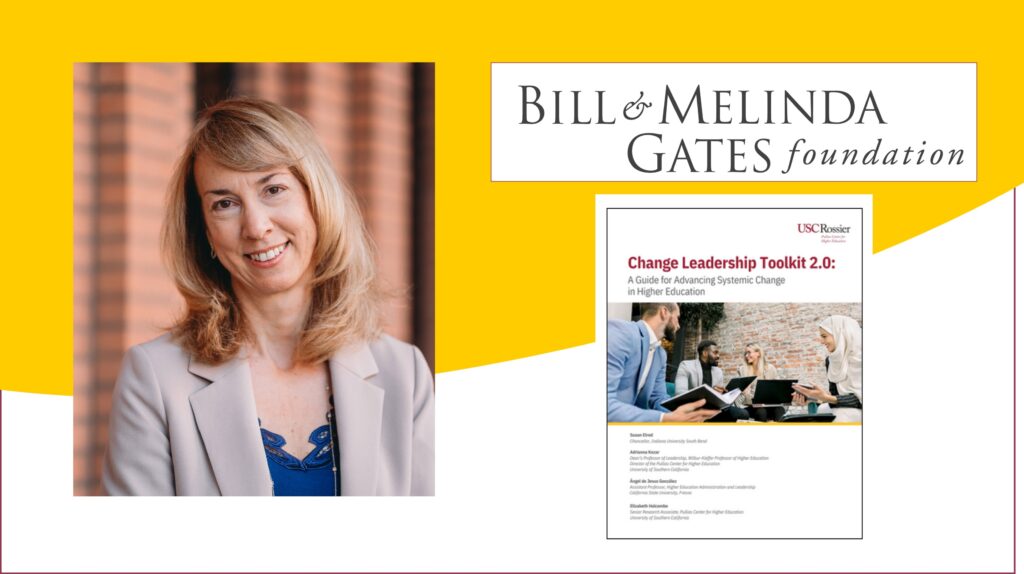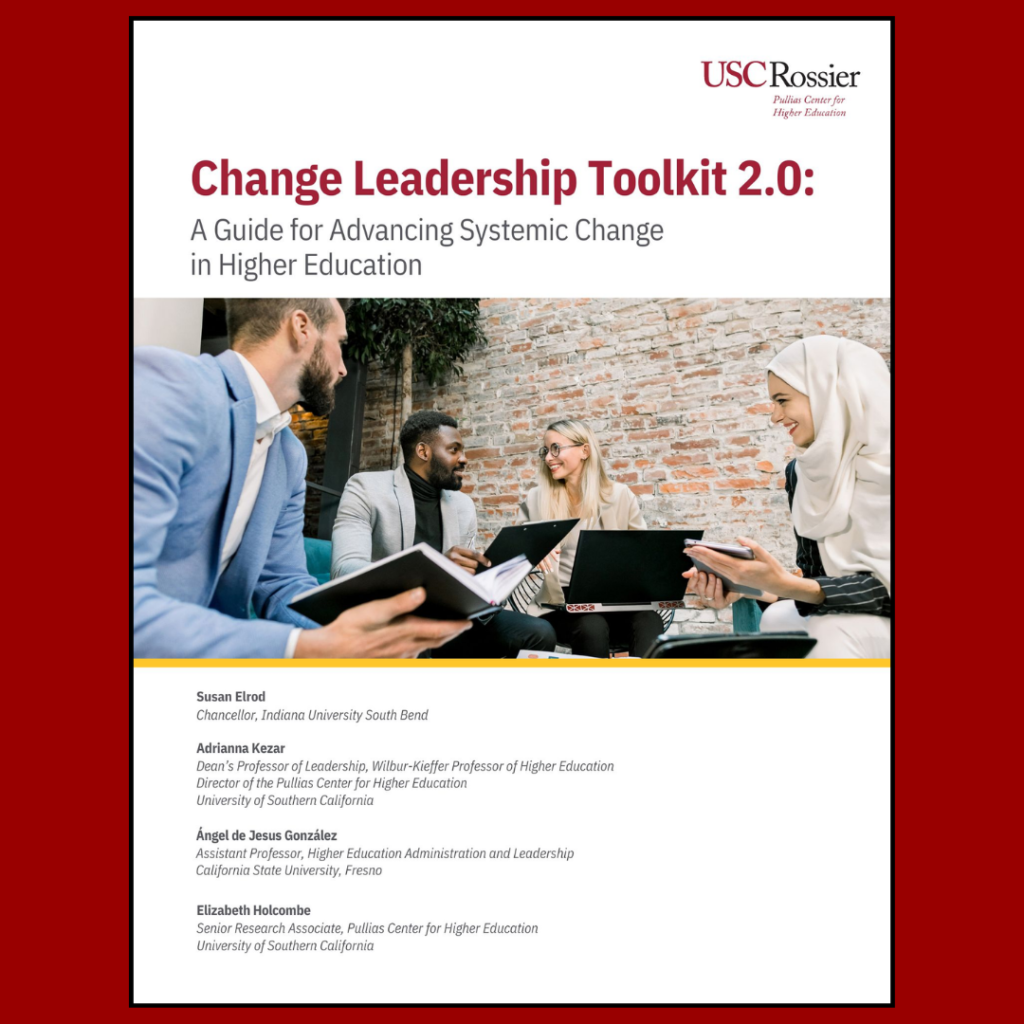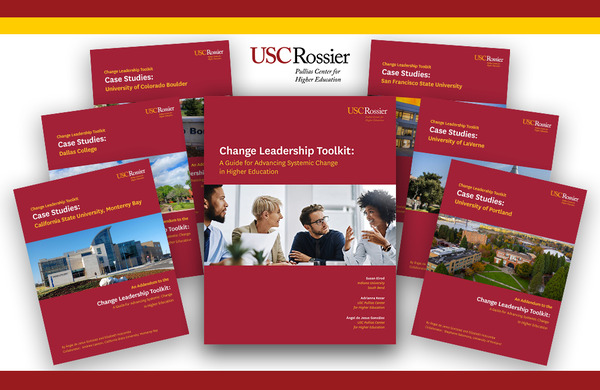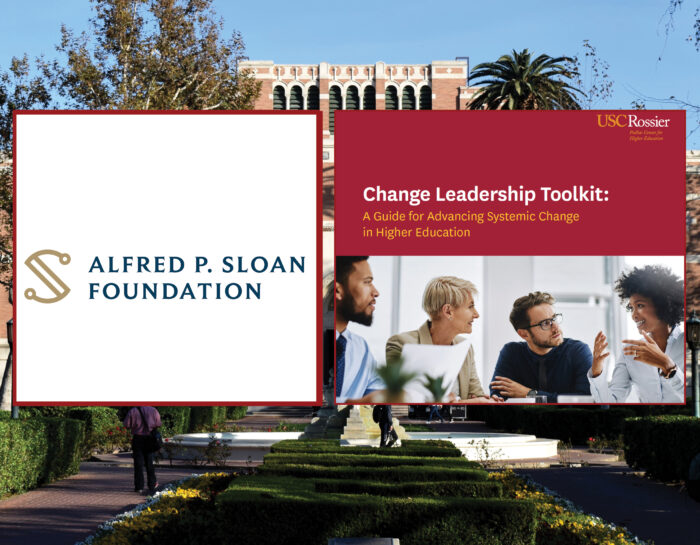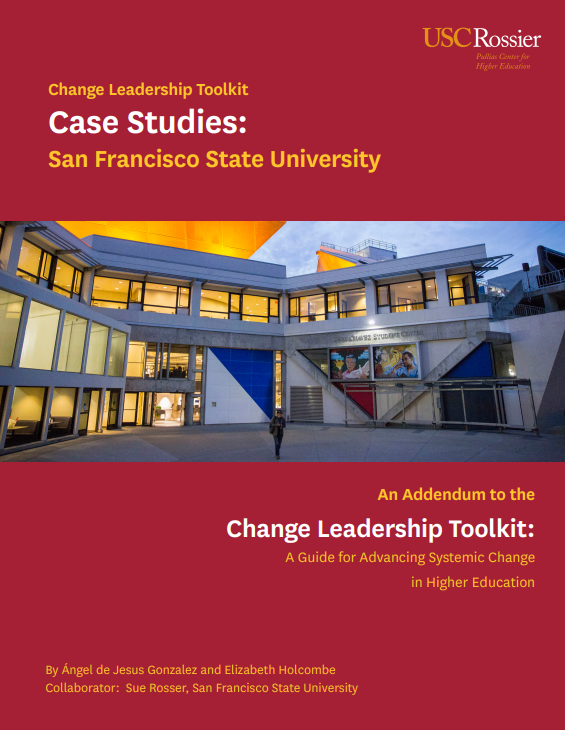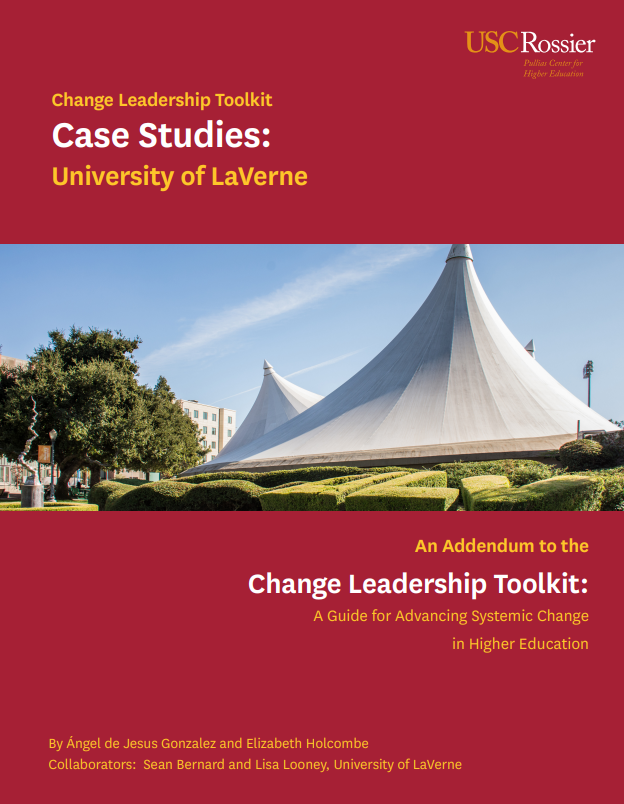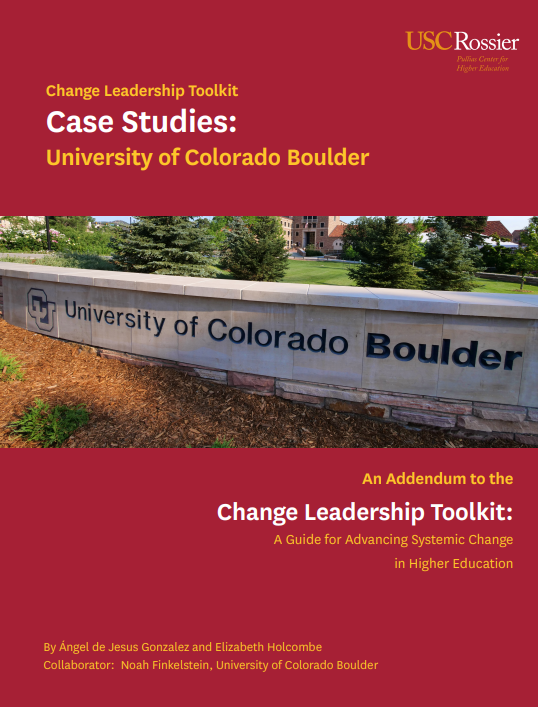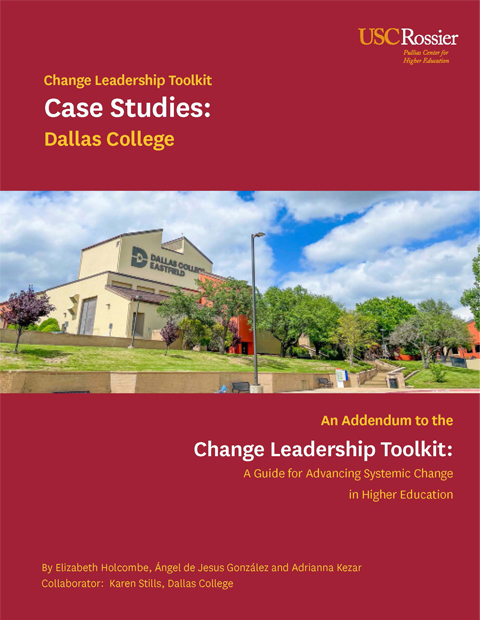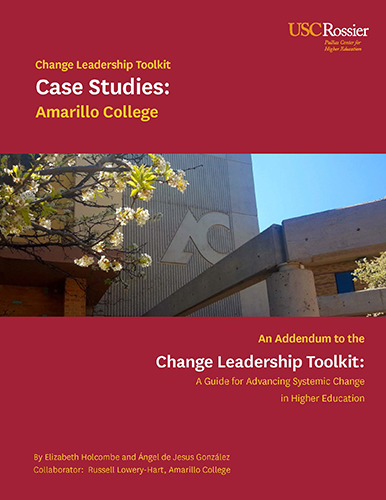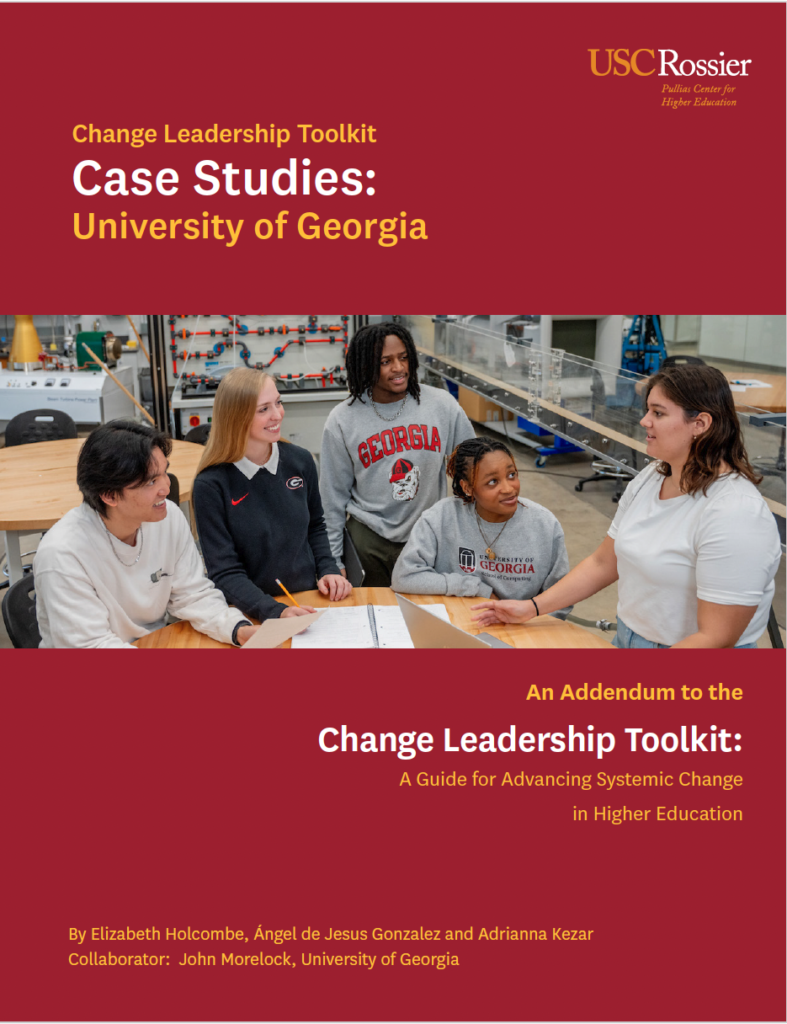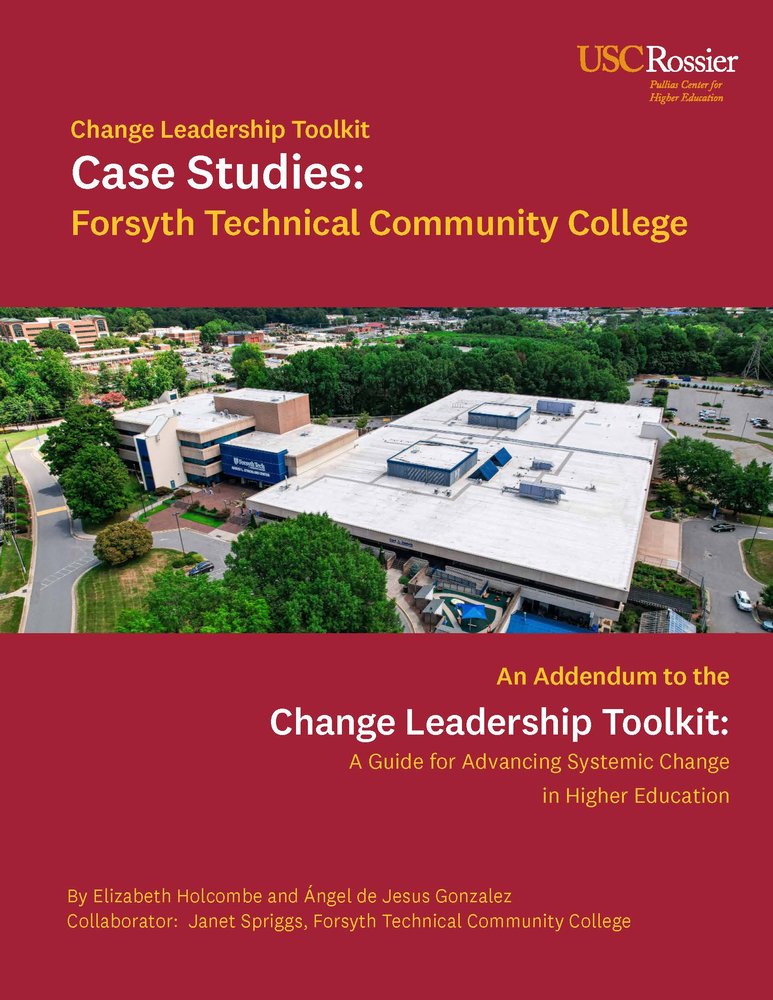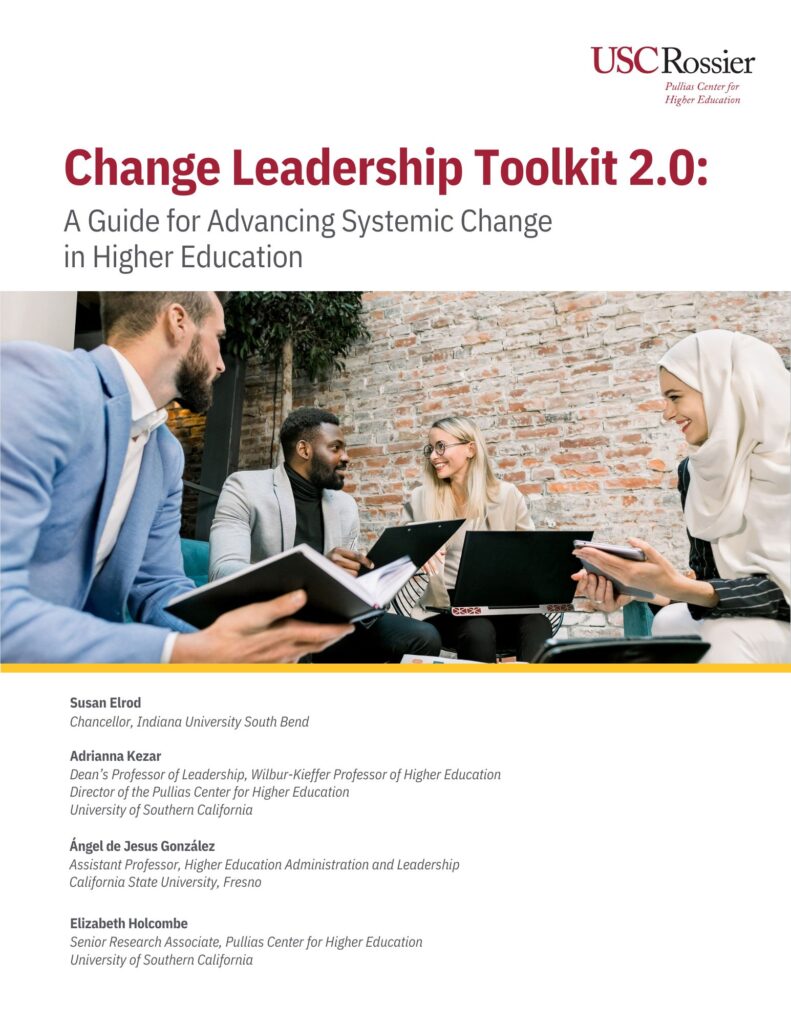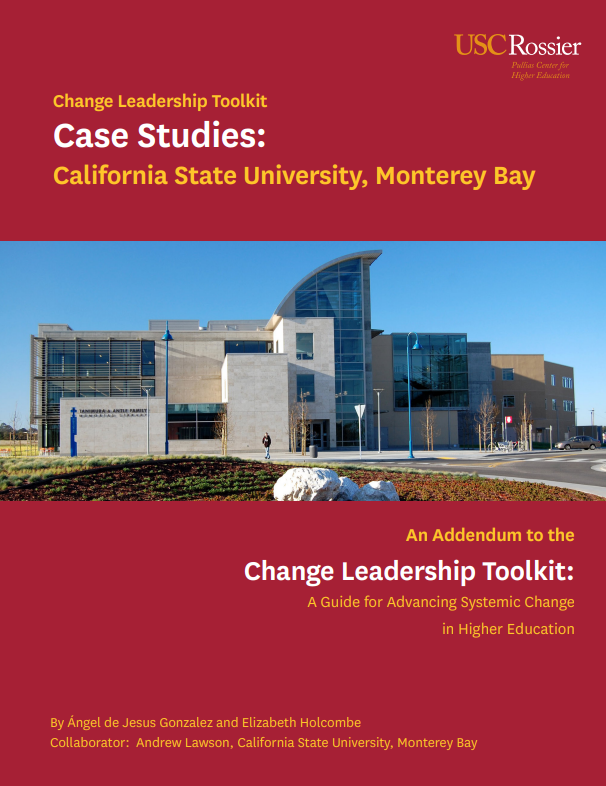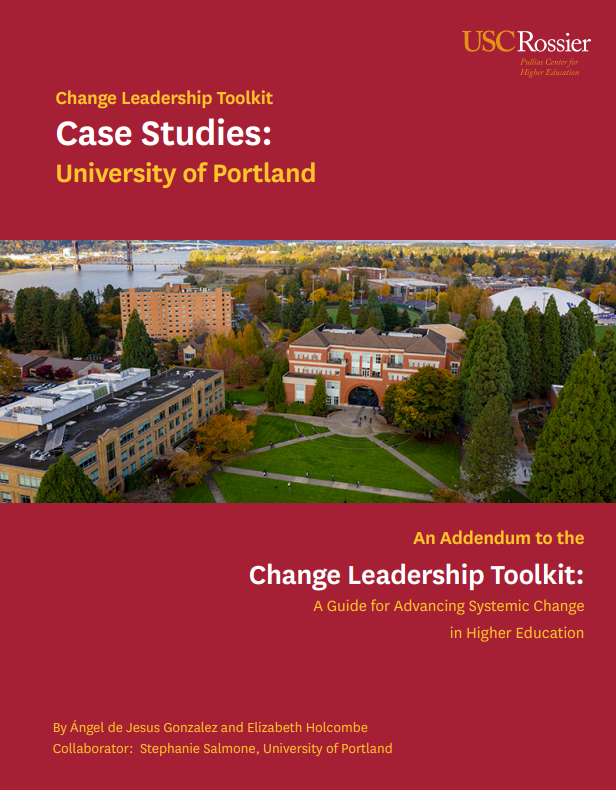
Description
The Change Leadership Toolkit for Advancing Systemic Change in Higher Education project aims to develop a set of tools and resources to help campus leaders and teams develop strategies and leadership competencies that contribute to implementing, scaling and sustaining campus systemic change and transformation initiatives.
Read Adrianna Kezar and Susan Elrod's op-ed in Inside Higher Ed titled "Keep Calm and Carry On" (March 2025). The op-ed explores why higher ed leaders need to carefully consider their unique contexts in charting a path through the current chaos and how the Change Leadership Toolkit can help.
About
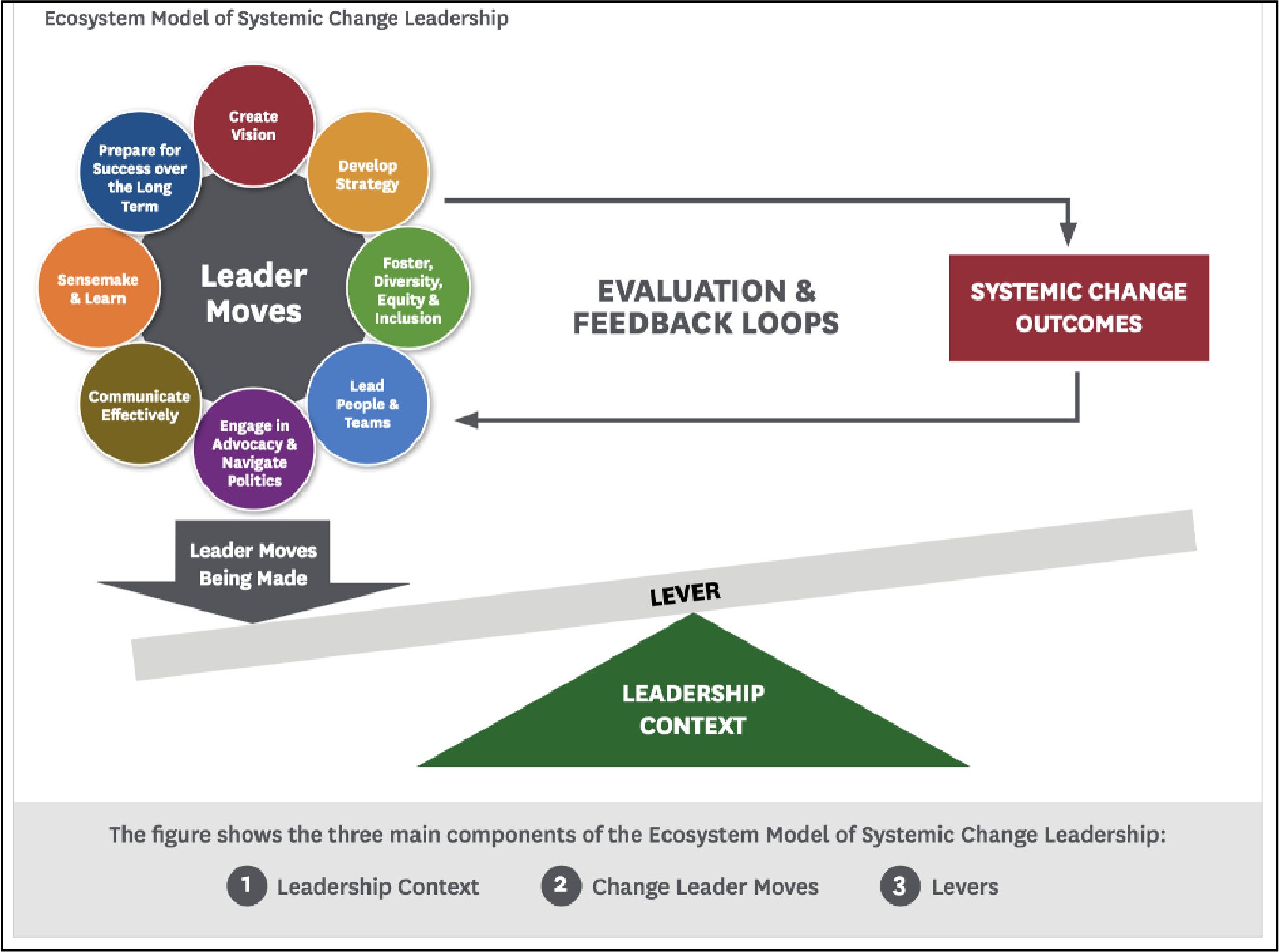
There is an increasing need to build leaders’ capacity to facilitate systemic institutional change and transformation that improves student success as well as other important campus goals. Campus leaders play critical roles in helping facilitate and support the institutionalization of policies, programs and changes to infrastructure, processes and culture that are necessary for institutional transformation efforts. Successful institutional transformation involves multiple levels, from grassroots faculty engagement to presidential vision and support – essentially shared or team leadership across campus.
This project, initially funded by the Bill & Melinda Gates Foundation (now the Gates Foundation), fills a major gap — there are no research-based models of change which are focused on leader roles, moves (or actions), and competencies that are accessible and user-friendly. This project also provides a comprehensive set of tools that details how to lead, not just what to lead, in ways that connect leaders to the entire process of change.
Change Leadership Toolkit 2.0
We are excited to release the next version of the Change Leadership Toolkit (CLT)! The CLT 2.0 was informed by a two-year research project funded by the Sloan Foundation working with 12 campuses on their systemic change projects. Through our latest research, we were able to refine the toolkit and worksheets. Here is a snapshot of some of the new content in the CLT 2.0:
The latest edition includes:
- Revised pre-planning resources on the What, Why and Who of Change to help leaders define their change goals, clarify their leadership roles, and build their change leadership team
- Streamlined planning and implementation worksheets with new, clearer instructions
- Re-ordered worksheets to facilitate stronger understanding of the systemic change planning process
- Created a new ecosystem mapping tool to bring all the concepts together
- Refined change levers — which are mechanisms to accelerate change
- Published more Case Studies to show the CLT working in different contexts
The Change Leadership Toolkit 2.0 (published July 2024), our Case Studies and online Resource Library will enable change leaders to facilitate more effective institutional change and transformation.
The Next Phase for the Change Leadership Toolkit
Thanks to a recent $600,000 expansion grant from the Gates Foundation, we will continue to enhance and expand the Change Leadership Toolkit. This new round of funding will focus on the expansion and enhancement of the Toolkit content and engagement with users in higher education. Principal Investigator Adrianna Kezar and her team, which includes Co-PI Susan Elrod and Elizabeth Holcombe, will work with selected higher education campus teams as they utilize the new resources for two years to obtain feedback and better understanding usage of the toolkit during implementation. In addition, the project includes development of asynchronous, interactive webinars as well as enhancing and expanding the Toolkit itself.
Webinars
We have produced two webinars that share details about the CLT, and campuses' experiences with creating and implementing systemic change at their institution.
Watch the webinar, "Meeting Higher Education's Most Pressing Challenges with the Change Leadership Toolkit' recorded on February 13, 2024.
Watch the webinar, "Change Leadership Toolkit 2.0 — Change Leader Stories and What's New' recorded on October 24, 2024.
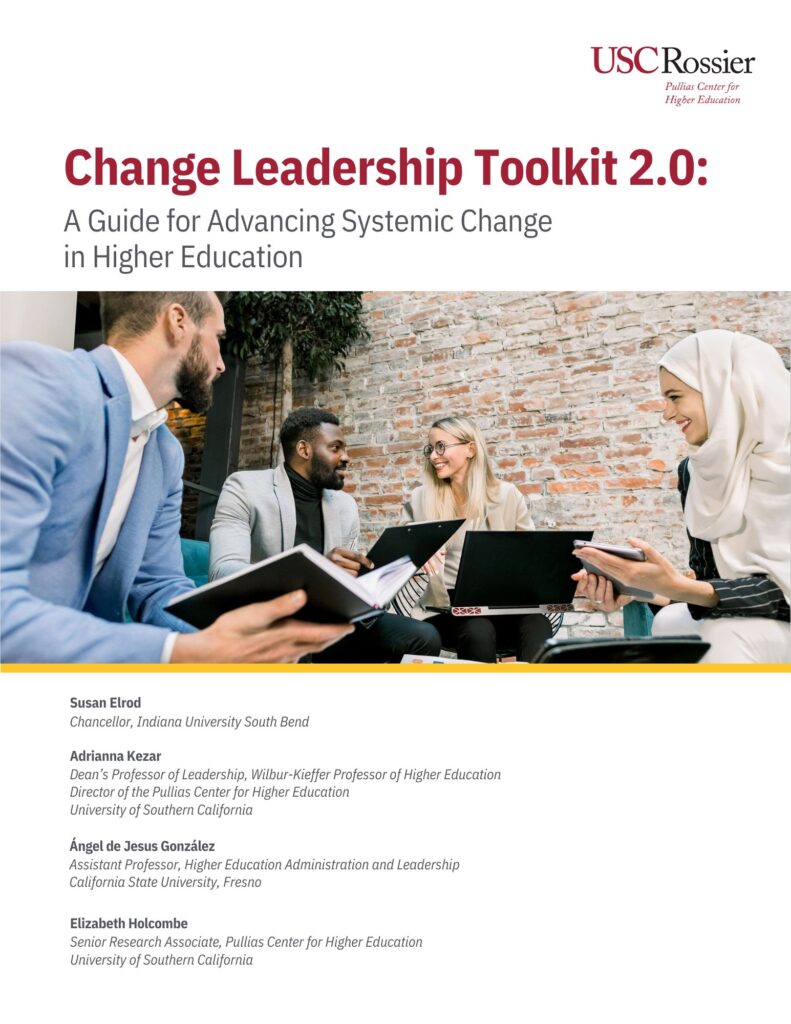
Project News
Project Team
Adrianna Kezar
Principal Investigator,
Professor, USC
Susan Elrod
Former Chancellor and Professor Emerit, Indiana University-South Bend
Elizabeth Holcombe
Senior Research Associate, USC
Publications
Funders

The Alfred P. Sloan Foundation is a not-for-profit, mission-driven grantmaking institution dedicated to improving the welfare of all through the advancement of scientific knowledge. Established in 1934 by Alfred Pritchard Sloan Jr., then-President and Chief Executive Officer of the General Motors Corporation, the Foundation makes grants in four broad areas: direct support of research in science, technology, engineering, mathematics, and economics; initiatives to increase the quality and diversity of scientific institutions and the science workforce; projects to develop or leveragetechnology to empower research; and efforts to enhance and deepenpublic engagement with science and scientists.
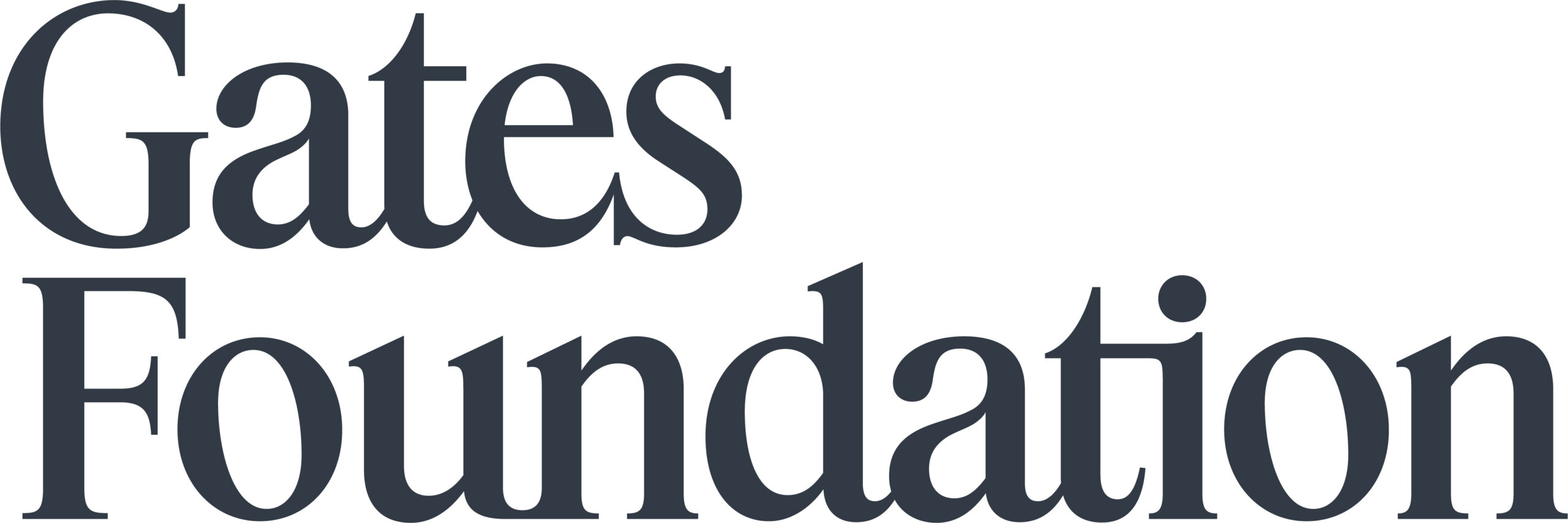
Guided by the belief that every life has equal value, the Gates Foundation works to help all people lead healthy, productive lives. In developing countries, we work with partners to create impactful solutions so that people can take charge of their futures and achieve their full potential. In the United States, we aim to ensure that everyone—especially those with the fewest resources—has access to the opportunities needed to succeed in school and life. Based in Seattle, Washington, the foundation is led by CEO Mark Suzman, under the direction of Bill Gates and our governing board.

National Science Foundation‘s mission is to advance the progress of science, a mission accomplished by funding proposals for research and education made by scientists, engineers, and educators from across the country. Grant ##2017799.


